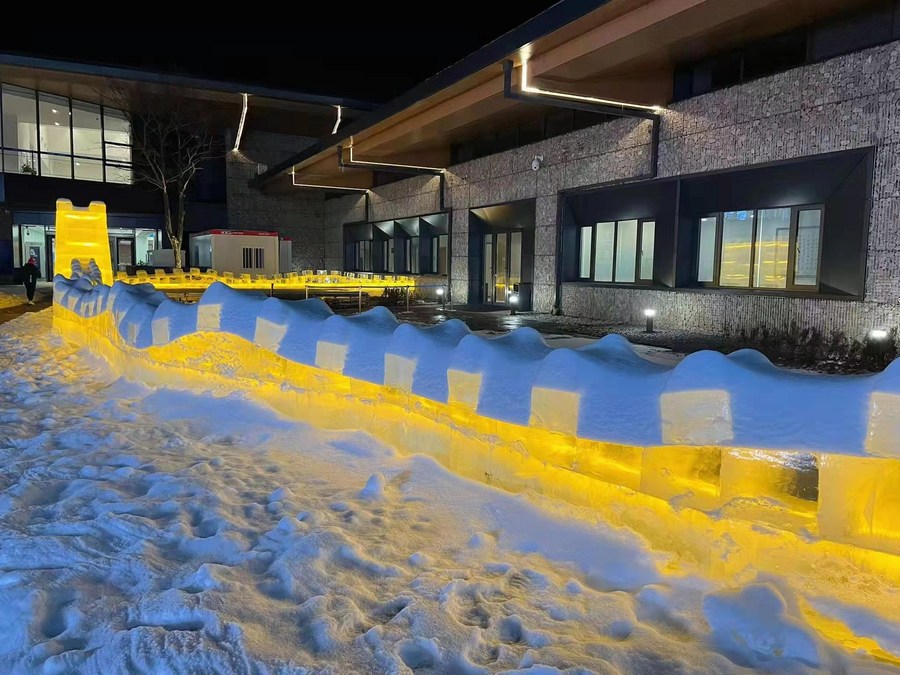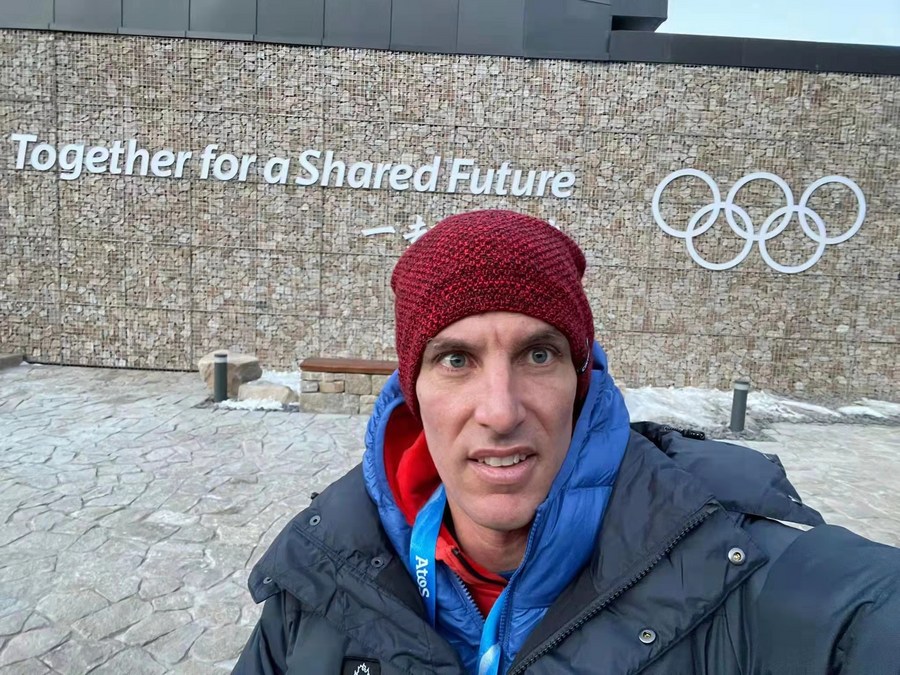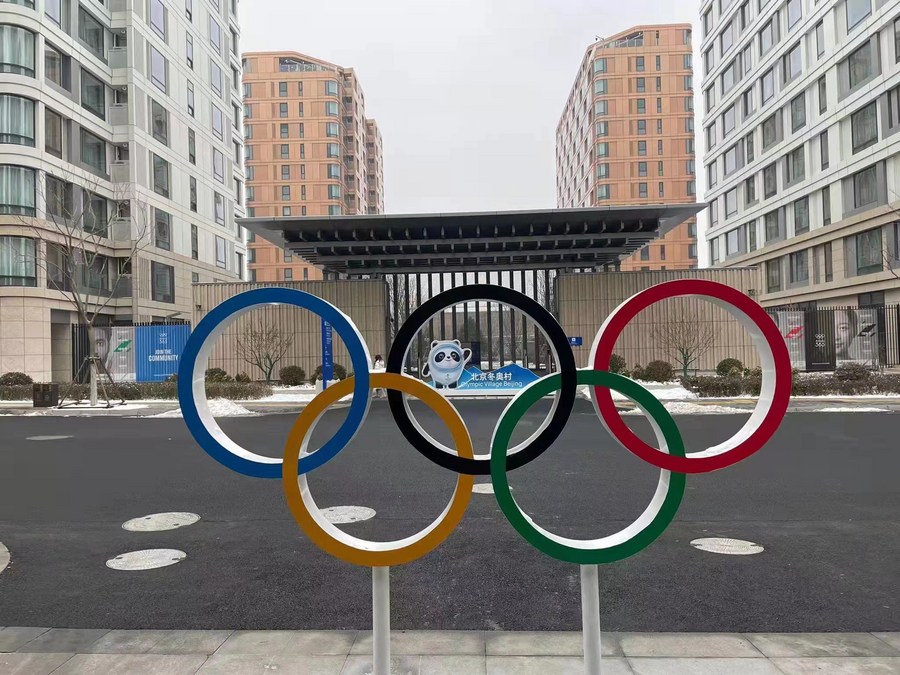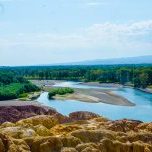by Martina Fuchs
Stockholm, Feb.22 (ChinaEuropedialogue CED) — As a double-landlocked country located between Switzerland and Austria, Liechtenstein, Europe’s fourth-smallest state and the world’s sixth-smallest, will be represented by two athletes in the Beijing 2022 Olympic Winter Games.
FIRST IMPRESSION: WELL-ORGANIZED

“My first impression is that the Olympic villages are really nice,” Christof Baer, chef de mission of the Liechtenstein Olympic Committee, told Xinhua in a video interview.
The three Olympic villages officially opened their doors to athletes and team officials on January 27, where Baer and his compatriots will stay for the coming weeks.
In addition to one in the urban area of Beijing, two other Olympic villages are located in nearby snow-capped mountainous areas, including one in Yanqing, a northern outer suburb of Beijing, and Zhangjiakou, a city in Hebei Province around 200km northwest of Beijing.
“I’m currently in Yanqing village but have already visited the one in Zhangjiakou as well. They’re impressively built and perfectly equipped,” Baer said.

Despite occasional difficulties with languages, Baer, from a German-speaking motherland, found that the volunteers for the Games are “very friendly, very helpful.” The Chinese-food-lover is also satisfied with the menu, which also includes western food, even kosher and halal.
“Of course, there are inevitable challenges, but I think that the Beijing 2022 organizing committee and the Chinese people themselves are willing to learn from the experts and give their best for the Games,” he said.
COVID-19: DAILY TESTING AGAINST VIRUS
China has put in place strict prevention and control measures, as part of its “dynamic zero-case” approach, to fend off COVID-19 infection risks as the highly contagious Omicron variant spreads across the world.
During the Games, strict pandemic prevention measures have also been adopted to protect the athletes. Each member of every delegation had to undergo a thorough health check-up and two PCR (polymerase chain reaction) tests prior to their departure.

Facing a recent resurgence of cases in Beijing, although only single-digit numbers of daily cases most of the times, the municipal government has taken resolute steps to ensure the health and safety of all personnel participating at Beijing 2022.
“Because of the pandemic, the Olympic Games are definitely different,” Baer said. “But in the end, it’s a unique experience for me and for every single athlete and coach.”
Upon his arrival in Beijing, a COVID-19 test was performed at the airport, followed by a brief quarantine pending a negative result.
“Then there is daily PCR testing for every single participant,” Baer explained.
FROM LIECHTENSTEIN TO BEIJING

At the opening ceremony, the flag of Liechtenstein, home to around 38,500 people, will be carried by its two athletes present, cross-country skier Nina Riedener and Alpine skier Marco Pfiffner.
It will be Riedener’s Olympic debut, while Pfiffner will represent his country, which is located in the heart of Europe’s Alpine region, in the Winter Olympics for the third time after Sochi in 2014 and PyeongChang in 2018.
“We’re a small delegation, we’re a small country, so we’re happy and also proud to have these athletes,” Baer said. “Even if they don’t win a medal, they have worked very hard to get here and will give everything they have out there.”
After Beijing, Baer’s Olympic mission will be far from finished. “We are also preparing our young athletes for the European Youth Olympic Festival in March.”
CHINESE VIBE
Coinciding with the 2022 Spring Festival marking the Year of the Tiger in the Chinese lunar calendar, which falls on February 1 this year, the Beijing Winter Olympics has been seen with shared cultural connotations, as they both celebrate togetherness and harmony.
The Olympic villages have also been decorated with Chinese elements and artworks, such as an ice sculpture of the Great Wall in the Yanqing village.
“There are lamps and posters everywhere. It makes us really aware that we are in China here,” he said.
The Yanqing District, where the Badaling section of the Great Wall is located, is one of the competition zones during the Winter Olympics. The district has prepared lectures and performances for overseas guests.
However, the athletes did not come to China to party but rather “to compete,” said the mission chief. ■


